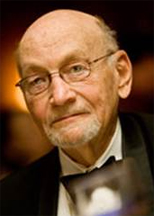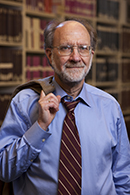Criminal Law and its Processes: Cases and Materials, Eleventh Edition
Criminal Law and its Processes: Cases and Materials, Eleventh Edition
Buy a new version of this textbook and receive access to the Connected eBook with Study Center on Casebook Connect, including academic lifetime access to the online ebook with highlight, annotation, and search capabilities. Access also includes practice questions, an outline tool, and other helpful resources. Connected eBooks provide what you need most to be successful in your law school classes.
Now in its 11th edition, Criminal Law and Its Processes: Cases and Materials covers all the doctrinal material and key criminal justice policy questions an instructor may want to explore for a either a one-semester or year-long course in criminal law.
From a preeminent authorship team, Criminal Law and its Processes: Cases and Materials, Eleventh Edition, continues in the tradition of its best-selling predecessors by providing students not only with a cohesive policy framework through which they can understand and examine the use of criminal laws as a means for social control, but also analytic tools to understand and apply important criminal law doctrines. Criminal Law and its Processes: Cases and Materials focuses on having students develop a nuanced understanding of the underlying principles, rules, and policy rationales that inform all criminal laws. A cases-and-notes pedagogy along with scholarly excerpts, questions, and notes, provides students with a rich foundation for not only the academic examination of criminal laws but also the application of the law to real-world scenarios.
New to the Eleventh Edition:
- Enhanced treatment of America’s long-overdue reckoning with over-criminalization, mass incarceration, and discriminatory law enforcement
- Discussion of abolitionist critiques of American penal law and consideration of restorative justice as a possible alternative to traditional punishment
- The chapter on rape makes more readily understandable the major split between states that still require proof of some kind of force and those that now make absence of consent sufficient. The material also contains more depth for discussion of the increasingly important question of what “consent” means, including several of the most recent cases and the new Model Penal Code provisions on rape approved by the ALI membership in June 2021.
- In-depth treatment of racial profiling and police use of excessive force, and a broader discussion of structural pressures and biases in the context of exploring the expansion of excuses
- Broader exploration of what society chooses to criminalize and prioritize for enforcement
- Updated notes to incorporate contemporary cases and recent news touching on criminal law
- Inclusion of additional preeminent cases in the field of criminal law, including:
- Kahler v. Kansas as a principal case in the material on the insanity defense
- Two new cases on the actus reus of conspiracy – the first in a drug distribution context and the second addressing Apple’s strategy for marketing ebooks on its iPad
Product Information
Criminal Law and its Processes: Cases and Materials, Eleventh Edition
Connected eBook with Study Center + Hardcover
Criminal Law and its Processes: Cases and Materials, Eleventh Edition
LLPOD
Criminal Law and its Processes: Cases and Materials, Eleventh Edition
Connected eBook with Study Center (Digital Only)
Criminal Law and its Processes: Cases and Materials, Eleventh Edition
eBook + Study Center + Audiobook
Criminal Law and its Processes: Cases and Materials, Eleventh Edition
Audio
Criminal Law and its Processes: Cases and Materials, Eleventh Edition
eBook + Study Center + Audiobook + Hardcover

